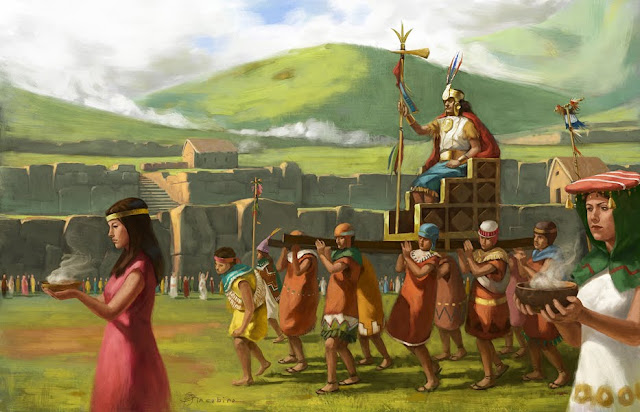WEEK 15th: PEOPLE WHO MAKE THE DIFFERENCE- 2
PEOPLE WHO MAKE THE DIFFERENCE- 2
|
PROPÓSITOS y EVIDENCIAS DE APRENDIZAJE |
||||
|
COMPETENCIA |
CAPACIDADES |
DESEMPEÑOS |
EVIDENCIA |
INSTRUM. EVALUACIÓN |
|
LEE DIVERSOS TIPOS DE TEXTOS ESCRITOS EN INGLÉS COMO LENGUA EXTRANJERA ESCRIBE DIVERSOS TIPOS DE TEXTOS EN INGLES COMO
LENGUA EXTRANJERA UTILIZA LAS TICS |
Identifica los principales elementos del texto Infiere e interpreta información del texto escrito. Adecúa el texto a la situación comunicativa. Demuestra autonomía en em manejo de entornos virtuales diversos |
Adecúa, organiza y desarrolla las ideas de forma
coherente y cohesionada. Identifica
información explícita, relevante y complementaria integrando datos que se
encuentran en distintas partes del texto Reflexiona y evalúa la forma, el contenido y el contexto del texto
escrito. Produce textos en inglés en torno a un tema con coherencia y cohesión. Utiliza el WhatsApp y visita diversos entornos
web. |
Registro
de participaciones Vocabulario
desarrollado. Cuestionario de comprensión lectora Grammar
activities |
Lista
de cotejo |
PROPÓSITO DE LA
SESIÓN:
·
Promover, en los
estudiantes objetivo, la reflexión, interiorización y aceptación de la
importancia de participar activamente en la protección de su salud física y mental
mediante la práctica de hábitos y rutinas para una vida mejor, mediante el
conocimiento de festividades y actividades propias de nuestro país para
reforzar la identidad .nacional
·
Emplear una
lengua extranjera para expresarse acerca de rutinas y hábitos en nuestra vida
diaria, con asertividad los recursos lingüísticos, verbales y no verbales y las
estructuras básicas que permitan una comunicación asertiva y fluida empleando
expresiones del pasado.
Responderán el reto de expresarse acerca de
eventos propios del país empleando expresiones del Present Simple and Simple
Past y nuevas expresiones de tiempo y vocabulario referido al tema propuesto.
ACTIVITY CLASS
INTI RAYMI, THE MOST IMPORTANT FESTIVAL
OF THE INCA EMPIRE
Every June 24, the Dios Sol (Sun god) is the protagonist of one of the most important and traditional festivals celebrated in Peru: The Inti Raymi or "Fiesta del Sol". During this date, thousands of national and foreign tourists walk the streets of the historic center of Cusco and congregate on the esplanades of its main enclosures to experience closely a special day of cultural activities, with the purpose to revalue the Inca legacy.
There are about 700 people,
including actors, dancers, and musicians who - dressed in typical clothing -
star in a series of stagings that include dances, performances, and praises
performed outside the Coricancha complex and the Sacsayhuaman fortress, as well
as in the Plaza of Arms of the city.
The beginning of a new
Inca year
The Inti Raymi was
established by the Inca Pachacutec in 1430 A. C. and was celebrated every
year during the winter solstice of the southern hemisphere - the day when the
Sun was farthest from the Earth. It was the most important ancestral festival
in Tahuantinsuyo to which people from the four Suyos used to go. The
celebration was last attended by the Inca in 1535.
In 1572, the Inti Raymi
was prohibited by the Spanish viceroy Francisco de Toledo as it was considered
a pagan ceremony and contrary to the Catholic faith, although it continued to
be celebrated clandestinely. In 1944, Faustino Espinoza Navarro promoted the
recovery of this traditional event and carried out a historical reconstruction.
Since that date, the festivity has become public again and attracts thousands
of tourists each year.
Today, the tradition is maintained as a
theatrical representation charged with mysticism and spirituality. The
celebration route begins in Coricancha, the ancient religious center of the
Inca capital, wherewith dances and songs an offering is made to the Inti (Sun
god).
On March 2 of 2001, the
Inti Raymi was declared Cultural Heritage of Peru. Its organization and
production are in charge today of
I.
READING ACTIVITIES:
1.
When does the Inti Raymi festival celebrate?
2.
Where is celebrated?
3.
Who visit Peru to see the festival?
4.
Why is considered so important?
5.
Why was the Inti Raymi prohibited?
6.
Who organize and produce the Festival nowadays?
7.
Did you ever watch the Festival? ¿Do you like it? Why?
II.
VOCABULARY ACTIVITIES (Develop with a
dictionary)
a.
Foreign
b.
Charge
c.
Ancient
d. Maintain
e. Pagan
f.
Leaders
/Pilgrims
g. Gateway
h. From across
i.
Homage
j.
Much more than…
k.
Renewing
priceless bonds
WRITING ACTIVITIES:
Write about any tradition from Cusco Region: (Carnival, Virgen del
Carmen, Santurantokuy, etc. (Elegir una
festividad).
|
Items |
I
can do it easily |
I
can do it |
I
can't do it, but it's difficult |
I
just can't do it. I need help |
|
1. Listening |
|
|
|
|
|
2. Reading |
|
|
|
|
|
3. Writing |
|
|
|
|
|
4. Grammar: S. Present S. Past |
|
|
|
|




Comentarios
Publicar un comentario